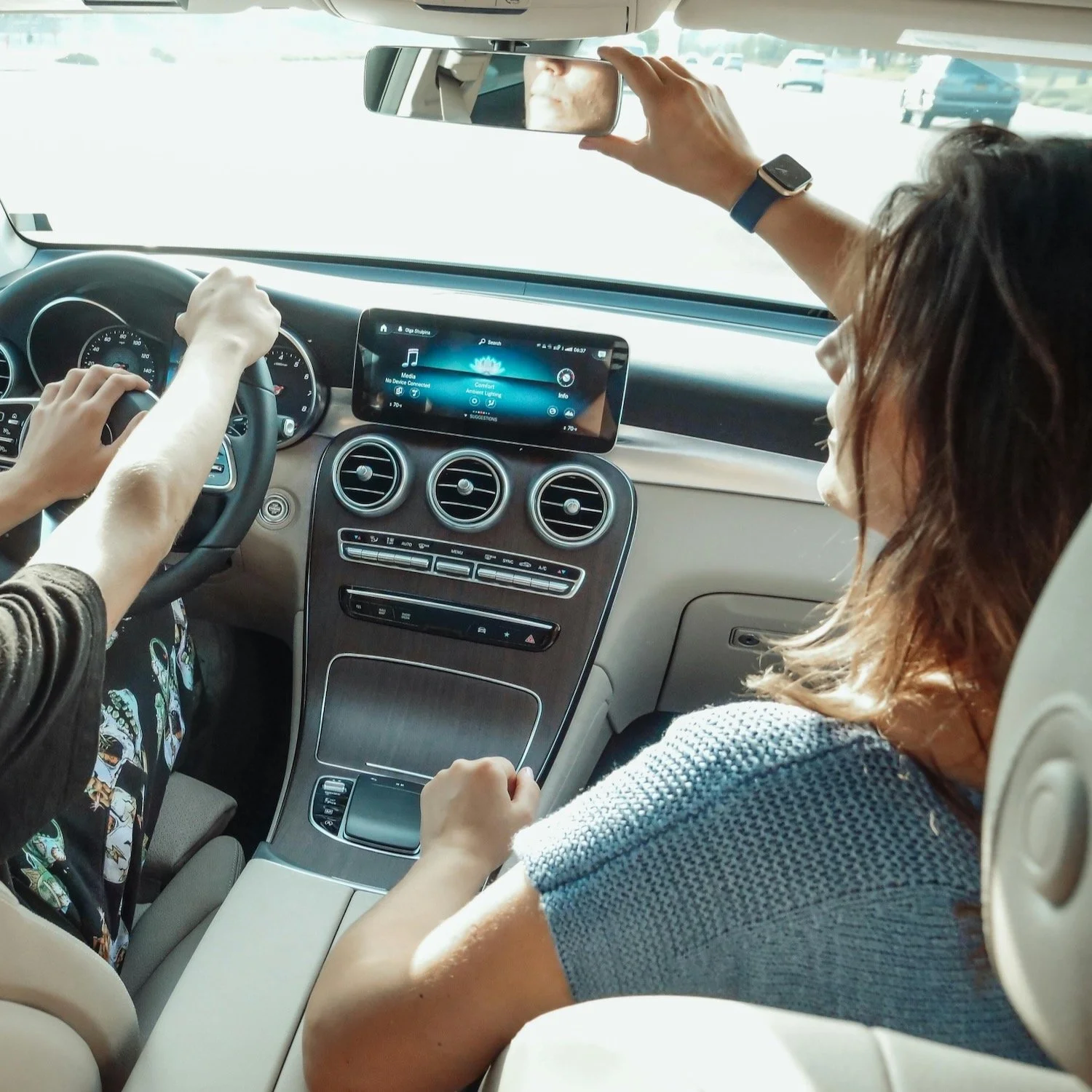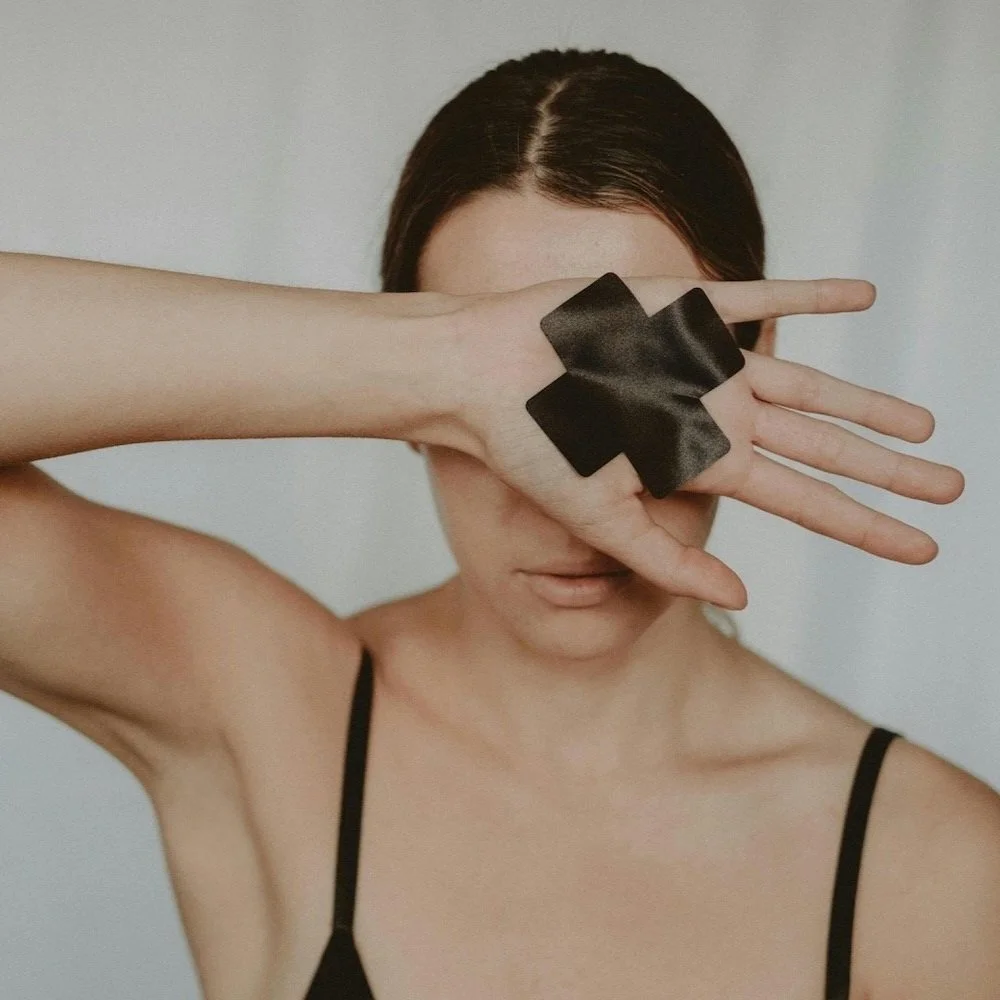This One Word Changed My Relationship With My Family
by Audie Metcalf
Warning: This article contains details about childhood adversity.
Like you, I have a deep but complex love for my parents.
And also like you, I am always stunned by their ability to reach right into my very essence, root around in there until they find the exact spot where my self-esteem lives, and press. Hard.
The interesting thing about growing up inside of a dysfunctional family system is that often the dysfunction isn’t fully perceived until much later in our lives.
When it’s all happening, it all seems as natural as the smells, the habits, the rituals, that are so much of what family even means to us. That naturalness is what makes childhood adversity such a tricky thing to identify. Notice the word adversity.
Who among us wants to say all those other horrific words about terrible childhoods that we don’t relate to? Especially when those other words were handed to us by the very parents we love to this day? And most especially since saying those words out loud, or typing them into existence as I am doing at this very moment in my small home office in Burbank, California, means that we have to reckon with the idea that we are a person who experienced trauma?
Trauma, as a word, is just so…dramatic. Plus, trauma must be something you can see, right? Something you can clearly feel? And it has to be something as overt as being locked in a closet or beaten with a belt, yes?
It turns out, as it’s taken me just a very quick 38 years to discover, actually no.
Trauma can be as slippery as an eel, and as imperceptible as a ghost.
In fact let’s coin a term for it right now: invisible trauma. This is the kind of trauma that can live in the shadows, like when your parent chooses their new boyfriend’s needs over yours, or when you say you love the look of J. Crew’s catalogue only to be met with how “silly and gullible” you are for buying into their marketing, or when your sibling is praised for their overwhelming potential while you are told you should “marry rich,” and when you cry you are mocked, and when you’re scared you are mocked, and when you don’t want to be left home alone you are mocked, and when your arm-fat is pinched in middle school as the one thing that separates you from being “actually attractive.”
You know. Allllll that stuff.
Some of that is my stuff and some of it is your stuff and all of it is sort of like yeah, that’s just what being a kid is, and they were just doing their best with what they had, and their parents were even worse to them, but oops, all of it is trauma.
I’m guessing some of you or even a lot of you might feel like this is whiny. Like, Audie, get over it. It was years ago. We all have something and your something is much better than a lot of people’s something. Which I hear loud. and. clear.
In fact, listening to others people’s stories about their own dark pasts used to trigger me into giving soapboxy speeches about how grateful I was not to traffic in that “victim behavior.” So if you’re feeling that way, (be honest now…) just pause, and as my therapist Stefanie says, just notice what you’re feeling.
Because if it’s judgment about me being whiny, it just might be your very clever ego protecting you from your own feelings about this. Your own darkness that you’ve folded neatly, stuffed in the way way back, because it’s too hideous to look at. Or maybe, because you didn’t even know you had it. Because remember, this stuff was invisible.
But the effects of it, are not.
The effects of childhood adversity are terrifying. And 35 million of us deal with those effects. They can look like perpetuating the cycle of abuse with our own families, or depression, or anxiety disorders, or addiction, and even our physical health, as pediatrician and mental health pioneer, Nadine Burke Harris studies and asserts.
So after clicking into this article and slogging through 6 paragraphs, here we are. This is the word that changed my life and the word that will possibly change yours:
Differentiation.
Differentiation is freeing yourself from your family of origin, in order to define yourself and your identity.
And no, it’s not severing ties, it’s not pulling away, it’s not isolating yourself from the people you love most in this world. It’s redefining the relationship to your family of origin, and seeing them as separate from you, so that your sense of self can be fully and completely distinct from your family’s version of who you are.
Part of what can make our lives so painful as adults, especially when we have experienced childhood adversity, is that we continue to experience pain. We continue to have similar relationships with our family of origin, we continue to play the roles we played in childhood to this day, and we continue to participate in dynamics which re-injure us over and over again. And that’s really what differentiation can help us to solve.
Here is a real-life example of what I mean:
When I was just beginning to sift through all of these ideas, I was visiting with my family. My parents exclaimed that they now feel as though they have full-time jobs worrying about “their two grandchildren.” But they have three grandchildren. The third is my stepdaughter. Someone I have known, clothed, saved money for, watched Cinderella with over 50 times and counting, and helped raise since she was two years old. Which is, interestingly, the same age I was when I met my own stepmother, some 41 years ago.
“differentiation is freeing yourself from your family of origin, in order to define yourself and your identity.”
The feeling in my chest when these kinds of things would happen is hard to describe. It is something like a pain, but more like a heat. The heat floods to my heart, moves up through my throat, and into my head, where it becomes an avalanche of tears. I feel discarded and diminished. Unloved, maybe. Like my life might not matter, to them, to anyone.
But there is also another feeling. A feeling of almost physical grief for the little kid who must’ve endured that same kind of thing, those same kinds of ideas of annihilation. That avalanche of tears came when I was 40. Where do kids put these feelings when they’re 8?
So now let’s jump to another family gathering, one year later, after many hours spent figuring out how to differentiate myself:
I watched my stepdaughter and her younger cousin reading together, sitting so closely their legs and hands were touching. They were both wearing these big, matching unicorn costumes. The younger cousin, of course, copied everything my stepdaughter did. This little moment was a moment made for capturing. And someone in my family did capture it. They raced over with their iphone and tap tap tapped and took a handful of photos. Except they didn’t think to take a picture of both of them. Just my sister’s child. Their real grandkid, one would presume.
This time though, the heat didn’t come. Later on, I did cry, but the tears were mostly from realizing they might never have a relationship with my brilliant, smart, hilarious stepdaughter. But I didn’t feel annihilated and I didn’t feel discarded. Because that moment had nothing to do with me and everything to do with them.
Even writing that distinction feels close to magic. Like being able to fly.
“differentiation gives us the unimaginable gift of self-knowledge.”
Recognizing our past, calling it out, challenging our now-adult relationships with our parents, identifying and assigning all these horrifying words and ideas to our childhoods, writing public articles that use all of those horrifying words and ideas, digging painfully into our darkness, all of it is only important if it helps us live better lives now. Otherwise, what’s all of this pain for?
And differentiation gives us that unimaginable gift. The gift of self-knowledge.
Some of us do better jobs of figuring out who the hell we are independent of our childhood roles, independent of who we are as mirrors back to our parents from their shitty narcissism born of their own unmet needs from their shitty narcissistic parents.
But even if our new identities are now cobbled together with twigs and scotch tape, they’re ours. And those identities are far better suited for the dings and failures and staggering limitations of our now older, slower parents. Our parents who are indeed just doing their best. A best that wasn’t nearly good enough then, and still isn’t good enough now, but we hug them anyway. We laugh when they tell us the same story we’ve heard 38 times anyway. We tell them we miss them when we hang up the phone anyway. Because we love them anyway. And we mean it.
Do you hear me, you guys? I love you anyway. And I mean it.
Audie Metcalf is the Editor-in-chief of The Candidly, and lives in LA with her family. You can find more of her articles here.








